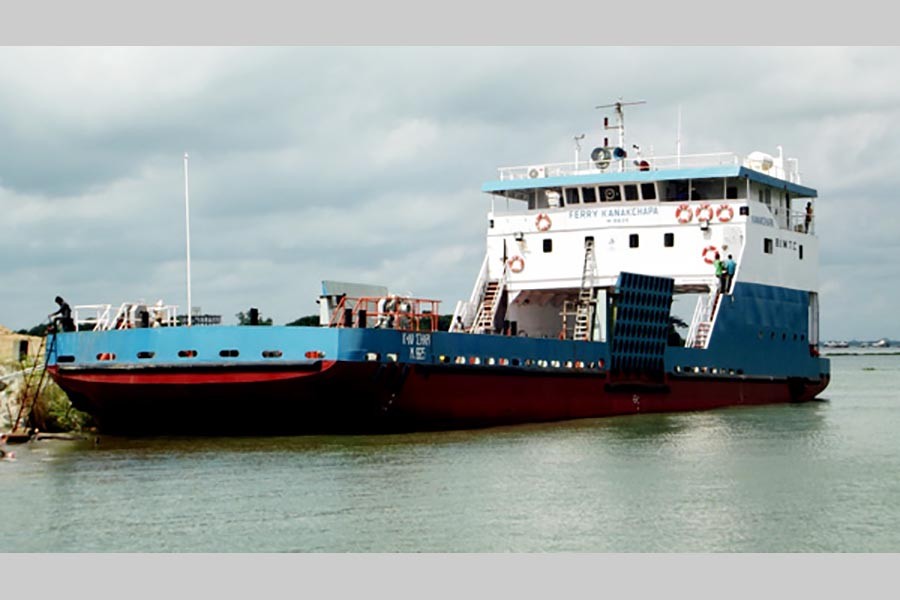If rivers are subjected to continued negligence, river communication or water transport is perpetually ignored or overlooked. Whereas waterways provide the cheapest mode of transportation for both passenger and cargo, road transportation was prioritised undermining the interests of about 3.0 million people of Bangladesh who are directly dependent on inland waterways. According to the World Bank, about 30 per cent of our passengers regularly negotiate water routes for travelling from one place to another and about 50 per cent of our total cargoes and 90 per cent of petroleum products are transported through waterways.
Unfortunately, inland water transport infrastructure in Bangladesh is not as developed as other competitive surface modes as it should have been, such as roads or railways. In fact, inland waterway routes have suffered a gradual decline not only in navigable length but also in service quality and safety standards due to inadequate allocation of public funds compared to the competing modes (Roads and Railways). Meagre funding in the sector has already resulted in irreparable damage to its once thriving navigable routes.
The total length of waterways that used to be 24,000 kilometres prior to our liberation, is now reduced to only 6,000 kilometres in rainy season and 4,000 kilometres in dry season due to silt deposits that blanketed the river banks and riverbeds and as river beds are not regularly dredged navigability is declining. According to an estimate, nearly 2.5 billion tons of sediments are deposited every year on the river beds and river banks and in this way usable length of waterways has been shrinking every year.
Prioritisation of road transport has put undue pressure on roads with increasing number of vehicles, perennial traffic congestions across the country and loss of valuable human lives due to accidents. Furthermore, due to excessive movement of vehicles roads get damaged as a result of which both time and transportation cost have been rising. Environment is also affected due to noise and air pollution from dust and carbon emission from vehicles.
Cost of maintenance of waterways is also much lower. Additionally, acquisition of land is not required for opening new water routes and that is why there is no possibility of damaging or destroying any crop land. Pollution of air and water is much less and noise pollution is almost zero. Most importantly, river transport is safer than road transport.
River transports can be used more profitably if accidents are reduced. A full-fledged hydrographic survey is necessary to identify the overall condition of river routes in the country. Channel marking and identification and marking of danger areas are very important for safe operation of river transports.
Illegal vessels plying the waterways of the country without registration and fitness are mainly accountable for frequent accidents. If all vessels have both, it will help prevent accidents by ensuring regular repair and maintenance on the one hand and increase revenue earnings of the government on the other. Laws should be framed for speedboats where accidents have been happening quite frequently. River vessels should be built as water tight and regularly surveyed by Directorate of Inland Water Transport.
PWD rescue ships cannot salvage large sunken ships. A committee formed with experts should arrange to procure more powerful ships for the purpose. To overcome weaknesses in investigating accidents Transport Safety Board (TSB) or Marine Accident Investigation Branch (MAIB) in line with the system followed in developed countries may be constituted which will work under the government and work independently to investigate causes of accidents and make recommendations thereof. It will keep in touch with similar organisations in other countries and solicit their advice wherever necessary. Last but not least, neutral investigation of accidents and objective recommendation of measures are essential for security and profitability of water transport.


